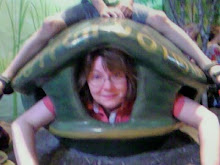Do you know the story of the whistle? Franklin recounted this story in an 1779 letter to his friend Madame Brillon:
When I was a child of seven years old, my friends, on a holiday, filled my
pocket with coppers. I went directly to a shop where they sold toys for
children; and being charmed with the sound of a whistle, that I met by the way
in the hands of another boy, I voluntarily offered and gave all my money for
one. I then came home, and went whistling all over the house, much pleased with
my whistle, but disturbing all the family. My brothers, and sisters, and
cousins, understanding the bargain I had made, told me I had given four times as
much for it as it was worth; put me in mind what good things I might have bought
with the rest of the money; and laughed at me so much for my folly, that I cried
with vexation; and the reflection gave me more chagrin than the whistle gave me
pleasure.
This, however, was afterwards of use to me, the impression continuing on my mind; so that often, when I was tempted to buy some unnecessary thing, I said to myself, Don’t give too much for the whistle; and I saved my money.
As I grew up, came into the world, and observed the actions of men, I
thought I met with many, very many, who gave too much for the whistle.When I saw one too ambitious of court favor, sacrificing his time in attendance on
levees, his repose, his liberty, his virtue, and perhaps his friends, to attain it, I have said to myself, this man gives too much for his whistle.When I
saw another fond of popularity, constantly employing himself in political bustles, neglecting his own affairs, and ruining them by that neglect, "He pays, indeed," said I, "too much for his whistle."If I knew a miser, who gave up every kind of comfortable living, all the pleasure of doing good to others, all the esteem of his fellow-citizens, and the joys of benevolent friendship, for the sake of accumulating wealth, "Poor man," said I, "you pay too much for your whistle."
When I met with a man of pleasure, sacrificing every laudable improvement of the mind, or of his fortune, to mere corporeal sensations, and ruining his health in their pursuit, "Mistaken man," said I, "you are providing pain for yourself, instead of pleasure; you give too much for your whistle."
If I see one fond of appearance, or fine clothes, fine houses, fine furniture, fine equipages, all above his fortune, for which he contracts debts, and ends his career in a prison, "Alas!" say I, "he has paid dear, very dear, for his whistle."
When I see a beautiful sweet-tempered girl married to an ill-natured brute of a husband, "What a pity," say I, "that she should pay so much for a whistle!"
In short, I conceive that great part of the miseries of mankind are brought upon them by the false estimates they have made of the value of things, and by their giving too much for their whistles.
Yet I ought to have charity for these unhappy people, when I consider that, with all this wisdom of which I am boasting, there are certain things in the world so tempting, for example, the apples of King John, which happily are not to be bought; for if they were put to sale by auction, I might very easily be led to ruin myself in the purchase, and find that I had once more given too much for the whistle.
With the benefit of time and hindsight, can you not immediately tick off on your fingers the whistle for which you paid too much? I stayed too long in a job with a company with whom I had an ethical incompatibility -- as anyone who has read the earlier posts knows in detail -- as well as relationships and self-defeating behaviors that each overstayed their welcome.
Exercise for this week: Identify one whistle for which you paid too much and decide what you are going to do to remove it.




No comments:
Post a Comment